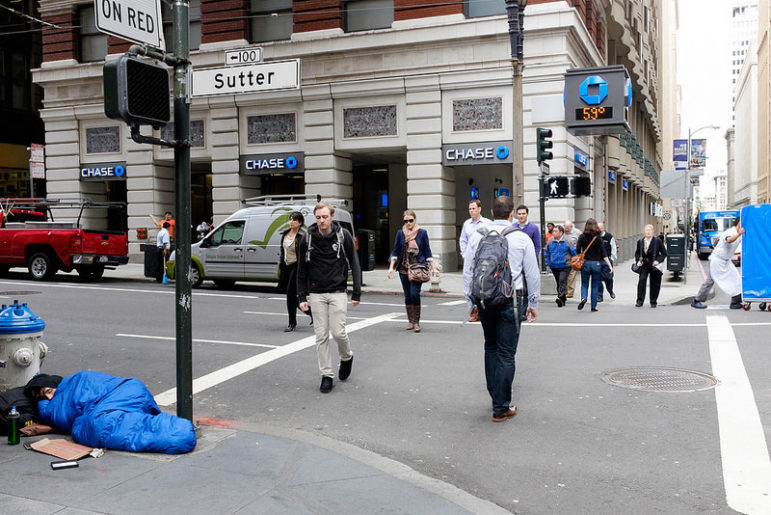
August 13, 2016; San Francisco Chronicle
San Francisco’s homeless population has been in the spotlight because of a recent pledge by the San Francisco Chronicle (with 80 other media organizations) to increase reporting on the problem. In the New York Times, Jon Steinberg, editor-in-chief of San Francisco magazine, described their motivation: “We are all fed up. We feel there is not enough movement and accountability on the issue. We want the full force of the Fourth Estate to bear down on this problem.”
Will the strategy work? Well, the city’s response to the increased attention was to hire Jeff Kositsky as its new director of the Department of Homelessness and Supportive Housing. Kositsky’s strategy toward reducing homelessness is a multifaceted approach that includes a holistic range of service and system upgrades.
Kositsky and his team include a new model in their strategy that’s currently gaining popularity in federal /state policy and funding circles. This approach, also described as the “rapid re-housing model,” focuses on two goals. The first is helping individuals secure permanent housing right away, without first being placed in transitional housing. This includes the help needed to find a place to live and the financial assistance necessary for rent and other housing expenses. The second goal is to provide case management services that include mental health and substance abuse, rehabilitation, and job counseling. There is some evidence in support of the effectiveness and cost savings of rapid re-housing initiatives.
Kositsky’s approach doesn’t stop there. In addition to increasing the amounts of supportive, permanent housing units, the city is also looking to upgrade their emergency shelter model with the creation of navigation centers, shelters with “intensive case management that allows entire homeless camps to move in with partners, pets, and belongings.”
Sign up for our free newsletters
Subscribe to NPQ's newsletters to have our top stories delivered directly to your inbox.
By signing up, you agree to our privacy policy and terms of use, and to receive messages from NPQ and our partners.
The city is clearly invested in solving this problem and has allocated nearly $265 million dollars to create the necessary support systems and housing units. (San Francisco’s city budget is $8.9 billion dollars.)
Last year, the city spent an eye-popping $241 million on homeless services and supportive housing. This year, that dollar figure will grow even bigger. In his budget book for 2016–17, Lee said he has devoted an additional $25 million in general fund money for homelessness to make it “rare, brief and one-time through the provision of coordinated, compassionate and high-quality services.”
Kositsky and his team are making the coordination of contracted services a special priority, improving how the city collaborates with its many nonprofit partners. In San Francisco, 75 private organizations, most of them nonprofits, provide homelessness prevention services via 400 contracts with the city totaling $155 million. As frontline service providers, nonprofits are key partners to the new initiative’s success, including their input in the design and the implementation of contracted services.
While none of these practices are necessarily brand new, they may not have to be. The media attention may help keep the pressure on, ensuring adequate support for what works.—Lauren Miltenberger













